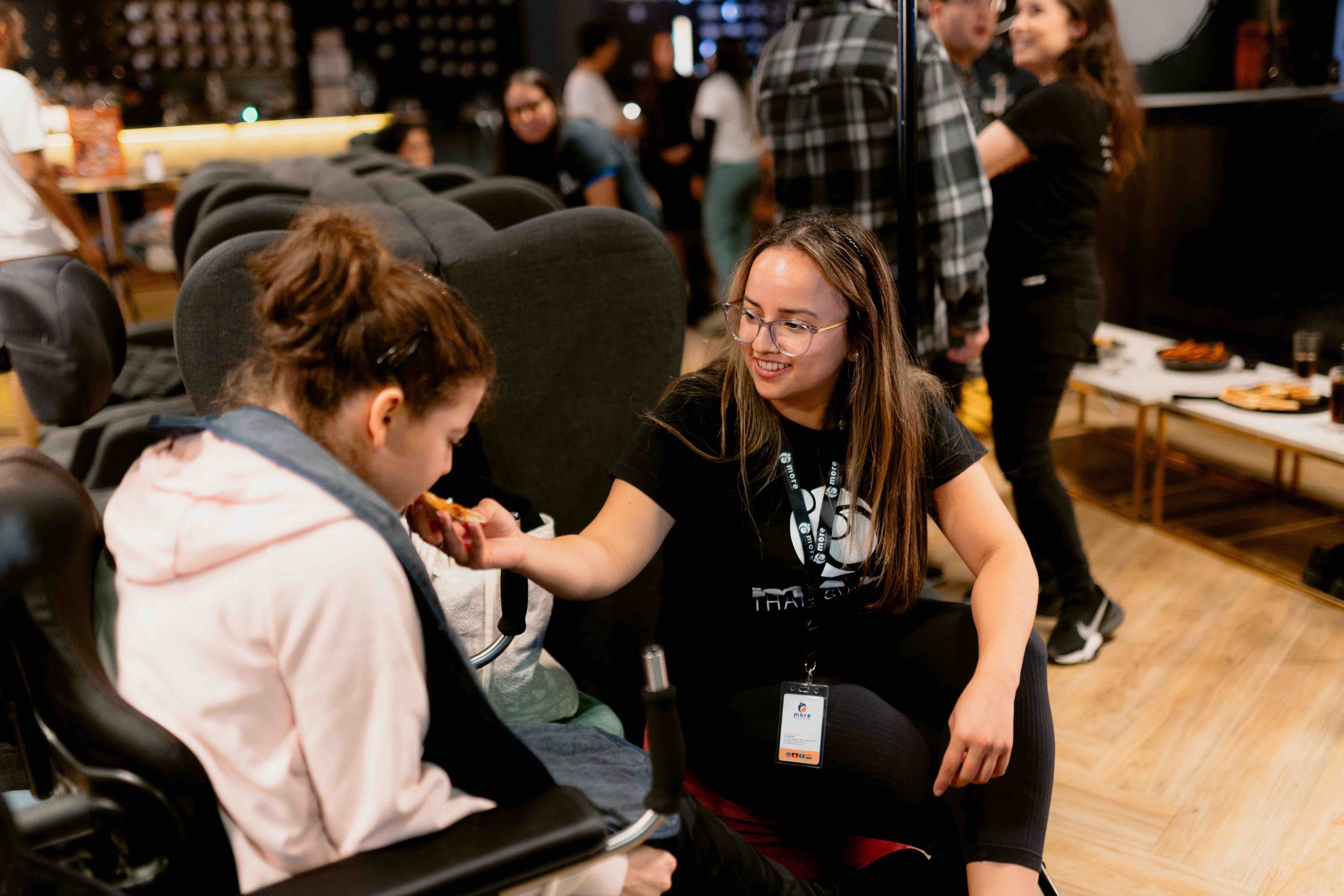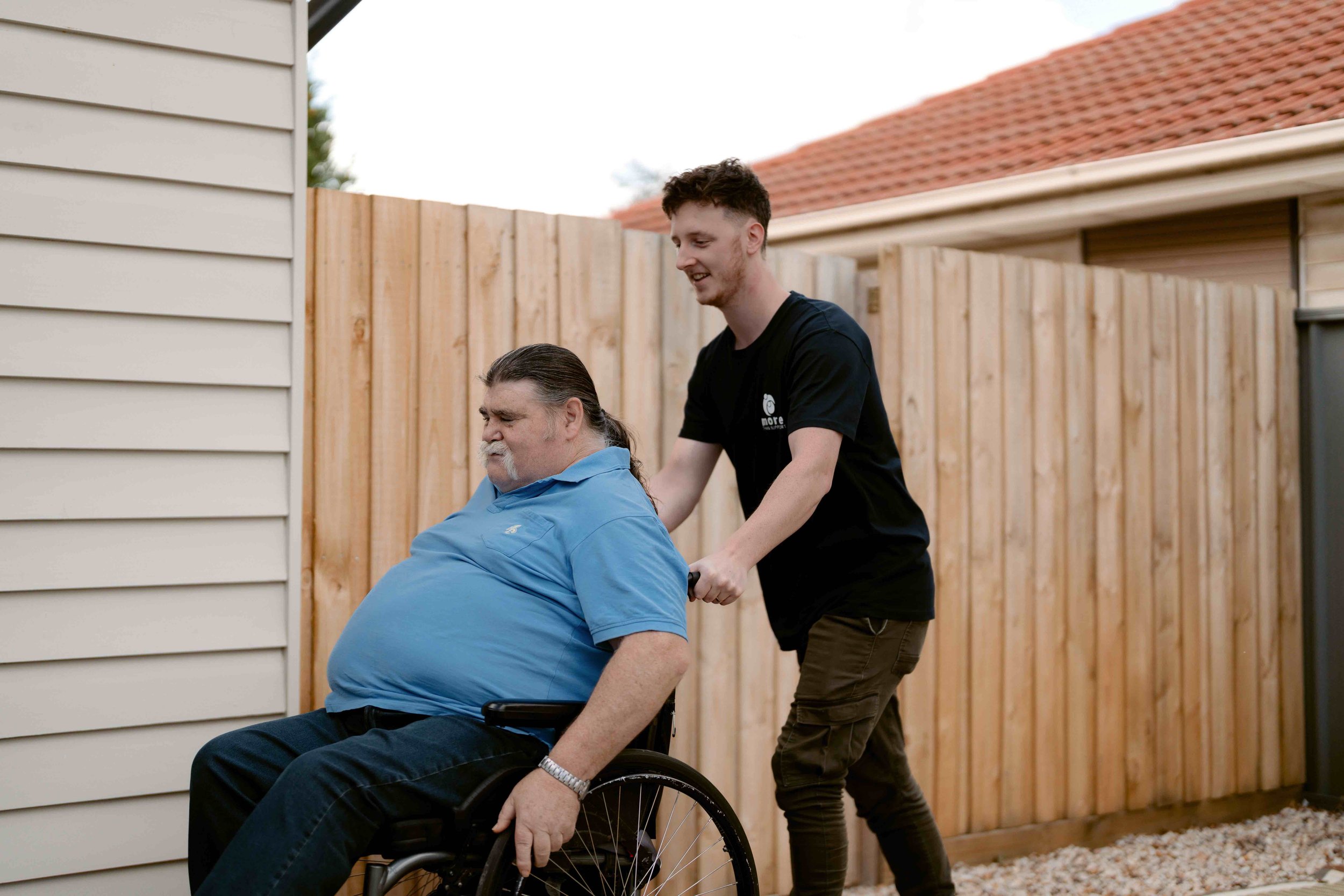
Support
Coordination
Empowering You to Navigate Your NDIS Journey and Achieve Goals
What is Support Coordination?
Support Coordination, also known as Coordination of Supports (CoS), is a type of support that can be funded as part of a NDIS plan which provides skilled assistance to participants to help access the right services and get the most out of their NDIS plan.
A Support Coordinator’s role is to guide you to understand and navigate your plan to use your budget efficiently in achieving the goals set in the plan. This could include assistance in finding appropriate support workers or allied health professionals, booking appointments or support with your NDIS plan reviews.
Our Support Coordination team possesses the required qualification and experience to enhance our client’s life through the ability of linking with the accurate support from the wide system.
At More Than Support we can offer you different options for this service according to what is established in your NDIS Plan.
Our knowledgeable team of Support Coordinators can assist you with:
Connect to NDIS.
Be the intermediate between you and the supports and services in line with a participant’s wishes and their plan budget.
Monitor plan budgets and support effectiveness.
Build capacity and capability with the participant to understand their plan, navigate the NDIS and make their own decisions.
Coordinate with an Allied Health specialist to arrange home modifications as required.
Support Coordinators will help participants with different things depending on:
NDIS goals and aspirations.
The level and type of disability or support needs.
How complex their situation is (e.g. multiple service providers, health needs, housing).
The availability of informal supports (like family or friends).
Living situation (e.g. living independently, in shared accommodation, or with family).
Whether they are new to the NDIS or already familiar with services.
The types of funded supports included in their NDIS plan.
Ability to coordinate their own supports independently.
Support Coordination Level 2:
Our Support Coordination team will help you to understand, navigate and implement the NDIS Plan received, build your capacity to manage your own supports independently. Any member of our team can lend a hand finding and connecting with a suitable provider, assist you to resolve any issues or challenges that arise with service delivery, and even to prepare and attend NDIS Plan reviews.
This support works to increase a participant’s capacity to maintain relationships, manage tasks, live more independently and be included in their community. It builds the participant’s confidence and skills to direct their lives, not just their services.
A Support Coordinator for this level include:
Collaborating with participants to identify their goals and needs.
Developing a personalised plan that aligns with your NDIS funding and objectives.
Coordinating multiple services and supports to ensure they work harmoniously.
Helping participants build skills to manage their plan and support more independently over time.
Support Coordination Level 3:
A higher level of support for participants whose situations are more complex needs or high-risk situation, crisis resolution, and who need specialist support.
A specialist Support Coordinator will assist participants managing complex support needs to manage complex support needs and multiple challenges (e.g. mental health, behavioural issues, housing instability, justice involvement, or family breakdowns) in their support environment and ensure a consistent delivery of service.
Crisis resolution and risk management were assisting in situations where there is immediate risk to the participant’s health, housing, or safety.
Coordinating across multiple systems:
Working with health services, housing providers, justice systems, child protection, and others alongside NDIS services.
Developing and implementing service plans:
Ensuring consistency of service delivery.
Making sure all services work together effectively, even in unstable or rapidly changing environments.
Capacity-building where possible as supporting participants (and their carers) to increase their ability to manage supports over time, when appropriate.
Psychosocial Recovery Coach
A recovery coach is a worker with an extended mental health knowledge and is designed for people with a psychosocial disability – typically related to a mental health condition that impacts significantly their daily life and functioning.
More Than Support as your Support Coordinator:
We ensure you get the best value out of your plan.
Multilingual support.
Extensive network of allied health professionals tailored to your needs.
Personal meetings at your home, school, organisation and/or hospital.
Choice and control over your providers.
Building you and your family or carers capacity to manage your plan more independently over time.
Support for all levels of disability, specifically high and complex care.
A professional and friendly team that will work side by side with you.
How We Support You
Our approach at More Than Support is based on your individual needs, whether you're new to the NDIS or have an existing plan. We consider your goals, disability, support needs, informal networks, and level of funded support to provide the right level of coordination.
From finding support workers, booking appointments, or assisting with plan reviews with the NDIS, our team is here to help.
How to get Support Coordination in your NDIS Plan?
Not all NDIS participants are eligible for this type of funding. If you would like this type of support you can contact your Local Area Coordinator (LAC), or us for more information and assistance in adding Support Coordination to your plan.
Some of the reasons you might need a support coordinator include:
New participant in the NDIS.
Help in managing multiple services.
Trouble getting the supports in place.
Frequent fluctuations in circumstances resulting from changes in support requirements.
Limited informal support and network.
Critical family situation.
Communication impairment.
Language barrier.
Complex needs.
Remote location.



